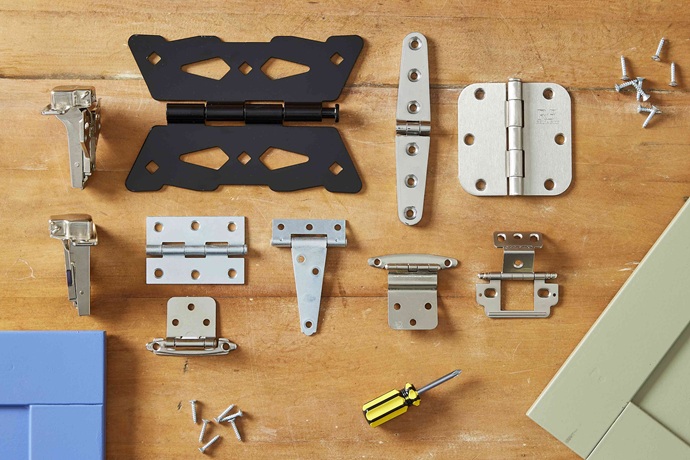When it comes to industrial and commercial floors, concrete floorings are undoubtedly the number one choice, and there are a bunch of reasons behind it. Not only are these floorings very sturdy, durable and abrasion-resistant, but they’re also designed to withstand heavy loads and traffic in the most efficient ways.
However, not a flooring out there is timeless, as all of them, including concrete ones, can eventually crack up under the constant abuse of industrial equipment such as forklifts, electric pallet jacks and other heavy vehicles, as well as hot and cold chemical spills. This is why many engineers and experts recommend reinforcing industrial and commercial floors with a decorative epoxy floor coating. Let’s learn a couple of things about these coatings.
What is Decorative Epoxy Floor Coating?
Epoxy floor coating is a type of adhesive, paint, plastic or other material created as a polymer of epoxides. The term “epoxy” describes a type of coating that is created of two components, commonly referred to as “resin”.
In fact, epoxy has been shown as the strongest type of resin in the industry, as it offers an exceptionally strong bond and allows for the construction of the most durable modules. This is why epoxy floorings and coatings are most commonly used in heavy-duty industries, heavy-duty manufacturing, warehouses, logistics, pharmaceutical, chemical companies, restaurants and commercial kitchens.
Benefits of Decorative Epoxy Floor Coating

As these decorative concrete coatings are considered the sturdiest in the industry, they come with a bunch of benefits for every business working with heavy-duty equipment or harsh chemicals. Starting from its greatest advantage, epoxy concrete coatings have properties that make them corrosion and moisture resistant. This is why they’re very suitable for industries and environments prone to humidity and moisture.
However, epoxy floor coatings aren’t only prone to pure humidity, but they can also withstand the impact of a large number of chemicals such as solvents and acids. Not only won’t these floorings get damaged, but they also won’t show any stains, which makes them a great option for pharmaceutical, labs, food processing, chemical manufacturing and textile industry.
Except for being able to withstand moisture and strong chemicals, epoxy flooring coatings make for a great electrical insulator. They’re very suitable to be combined with underfloor heating, which can be very useful to get rid of bulky radiators that take a lot of space and spend a lot of energy.
Last, but not least, as their name states, the main purpose of decorative epoxy floor coatings is to provide a glossy colour effect to meet your workspace’s design needs. These coatings are available in many colours, and it’s even possible to create an authentic concrete look or sprinkle the floor with sparkles or flakes. In addition to this, the seamless look of this liquid-tight coating makes these floorings very easy to clean and maintain a sanitary industrial or commercial environment.
How to Choose the Right Decorative Epoxy Coating

Once you decide to reap the benefits and choose from the decorative concrete coatings on the market, it’s essential to get to know the different types and determine what’s most suitable for your environment. Hence, we can split epoxy floor coatings into a couple of categories:
100% Solid Epoxy
100% solid epoxy coatings, commonly referred to as two-part epoxy coatings are the type that doesn’t include any conventional solvents, but a mixture of resin and hardener or activator. These coatings are considered the best decorative concrete coating option, as they offer a thick, hard and attractive finish in a plethora of colours and the option to sprinkle vinyl paint chips over the surface for a better aesthetical appearance.
However, this also makes 100% solid epoxy the priciest and the most demanding to install when compared to the other types of coatings. This is due to this coating emitting intense fumes when applied, which requires thorough ventilation. However, the surface will be fully hardened within 24 hours and ready for a year-lasting abuse.
Two-Part Water Based Epoxy
This type of epoxy coating is a hybrid formulation of true epoxy (resin plus hardener or activator) and water as a solvent. This makes them one of the best alternatives to the traditional 100% solid epoxy, and much easier to handle at the same time.
In fact, two-part water-based epoxy coatings are often readily available in home improvement, paint and hardware stores, don’t spread as many odours as solid epoxies and are very easy to clean up by using water and soap. On account of this, have in mind that a water-based epoxy needs more time to dry, as the water must completely evaporate for the flooring to get hardened and ready for use.
However, keep in mind that these floorings aren’t as durable as solid ones, and this is why the coating is way more affordable.
Water-Based Epoxy
Water-based epoxies are considered the easiest type to work with, considering the simplicity to install and the low cost associated with providing one. Hence, these coatings are not much recommended for heavy-duty environments, as they’re often not strengthened to provide high abrasion and heat resistance.
Solvent-Based Epoxy
As their name states, solvent-based epoxies are based on different solvents such as xylene instead of water. Due to these reasons, solvent-based epoxy can’t be cleaned or used in the majority of situations.
However, for the sake of the truth, know that not all solvent-based epoxy coatings are created equally. In fact, there are a plethora of types of solvent-based epoxies featuring different levels of durability and sturdiness and hence it’s best to pick something from a reputable manufacturer if you want to ensure the durability of your flooring.
Now that you found out about the purposes, benefits and types of epoxy coatings, it’s time to hit the market and get one for your business.



